Search results for: “energy density”
-
Energy economics: energy content of combustion fuels?
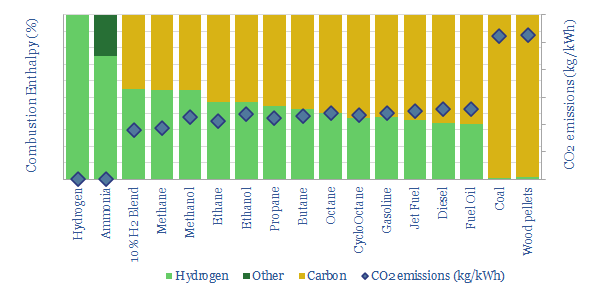
The purpose of this data-file is to disaggregate the energy economics of combusting different fuels, including natural gas, different oil products, NGLs, coal, hydrogen, methanol, ammonia et al. The most effective way to blend more hydrogen into the energy mix is coal-to-gas switching, followed by using lighter oil products.
-
World food production: energy breakdown by crop by country?
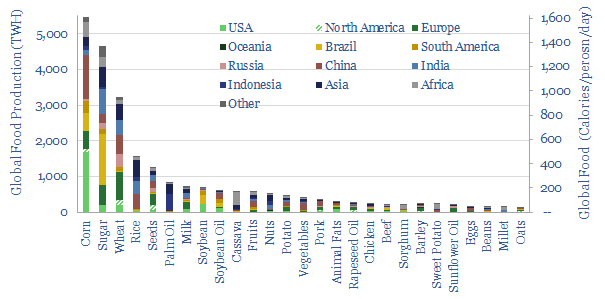
World food production runs at 10 bn tons per year, equivalent to 25,000 TWH of primary energy, or 7,500 calories per person per day. Of this total, 30% is fed to animals, 30% is wasted, 5% is converted to biofuels and 2% is used in consumer products. Humans eat the remaining 2,500 calories per person…
-
Energy costs of energy transition?
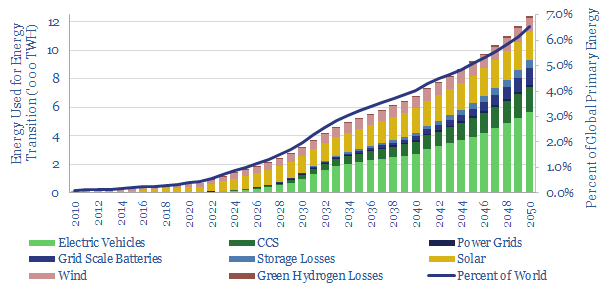
Reaching net zero requires building wind, solar, grid infrastructure, energy storage, EVs and capturing CO2. Thus the total energy costs of energy transition reach 1% of total global primary energy in 2025, 2% in 2030, 4% in 2040 and 6.5% in 2050. Energy transition is materially easier to achieve from a period of energy surplus.
-
Vehicles: energy transition conclusions?
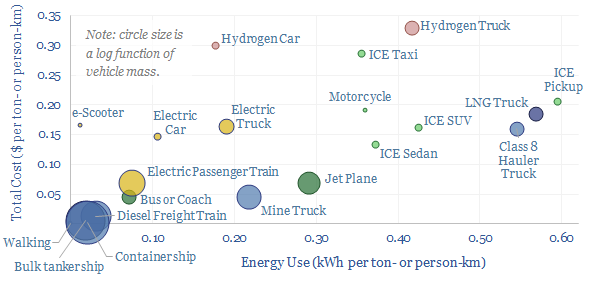
Vehicles transport people and freight around the world, explaining 70% of global oil demand, 30% of global energy use, 20% of global CO2e emissions. This overview summarizes all of our research into vehicles, and key conclusions for the energy transition.
-
24M: semi-solid battery breakthrough?
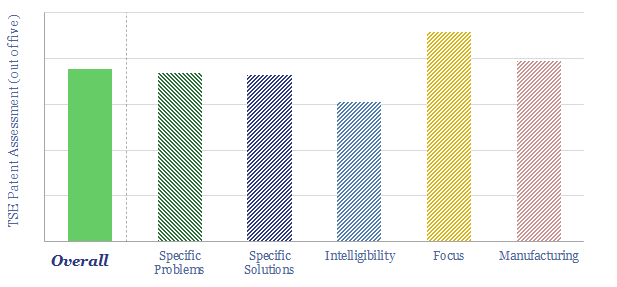
Semi-solid electrodes are aimed at “dramatically reducing” costs of lithium ion batteries, with 70-100% higher energy density, plus better safety and reliability, for use in battery storage and electric vehicles. 24M has a moat and is licensing technology to Freyr and Volkswagen.
-
Semiconductors: conductivity calculations?
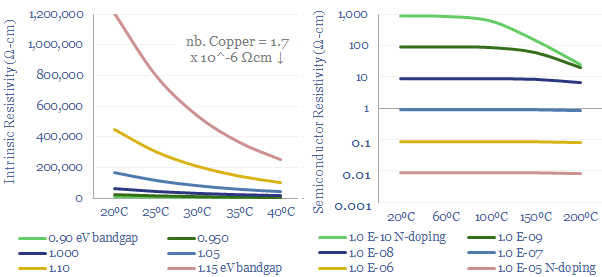
This datafile calculates the conductivity and resistivity of semiconductors from first principles, based on their bandgap, doping, electron and hole mobility, temperature, the Fermi-Dirac distribution and the Effective Density of States. Put in any inputs you like to compute the resistance of silicon, germanium or GaAs.
-
Solvay: lithium ion battery binders and additives?
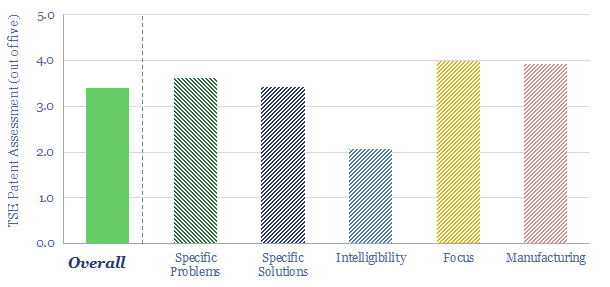
Solvay is a chemicals company with growing exposure to battery materials, especially the PVDF binders that hold together active materials in the electrodes. But also increasingly in electrolyte solvents, salts and additives. Interestingly, our patent review finds optimizations of this overall system can improve the longevity and energy density of batteries, which may also lead…
-
Amprius: silicon anode technology review?
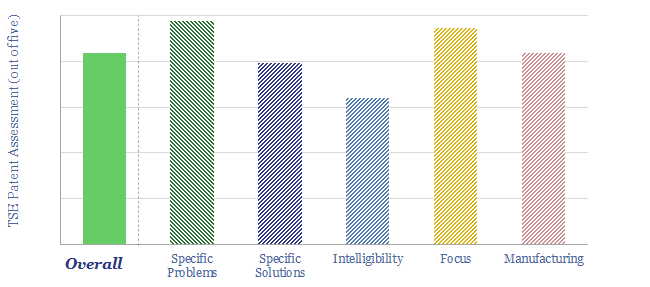
Amprius is commercializing a lithium-ion battery with a near-100% silicon anode, yielding 80% higher energy density. It can achieve 80% charge within 6-minutes. The company is listed on NYSE. We have reviewed Amprius’ silicon anode technology. The patent library is excellent, goes back to 2009 and has locked upon a specific design. This allows us…
-
Lithium ion batteries for electric vehicles: what challenges?
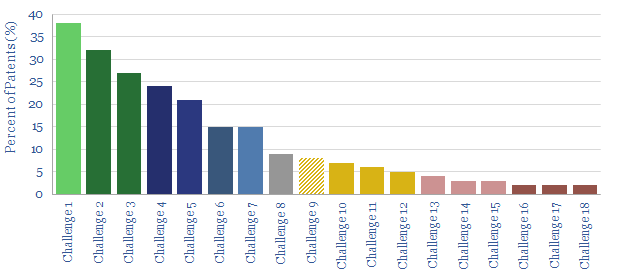
This data-file tabulates the greatest challenges for lithium ion batteries in electric vehicles, which have been cited in 2020’s patent literature. Conclusions are spelled out in detail, covering energy density, “million mile” longevity and electric semi-trucks. Companies profiled include Tesla, CATL, LG, Sumitomo, et al.
-
Thermodynamics of CO2 at different temperatures and pressures?
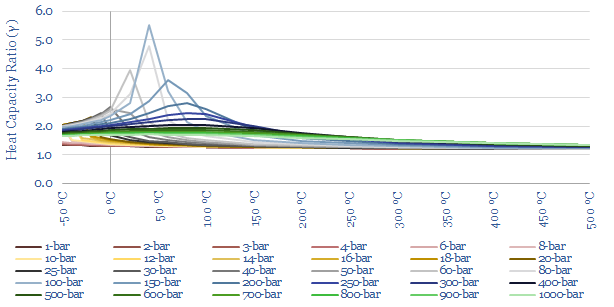
This data-file aggregates thermodynamic properties of CO2 at different temperatures and pressures. Specifically, how do different pressures and temperatures dictate CO2’s density, Cp, Cv, Heat Capacity Ratio (gamma), Entropy, and Compressibility. These variables matter for CO2 compression, CCS and sCO2 power cycles.
Content by Category
- Batteries (89)
- Biofuels (44)
- Carbon Intensity (49)
- CCS (63)
- CO2 Removals (9)
- Coal (38)
- Company Diligence (95)
- Data Models (840)
- Decarbonization (160)
- Demand (110)
- Digital (60)
- Downstream (44)
- Economic Model (205)
- Energy Efficiency (75)
- Hydrogen (63)
- Industry Data (279)
- LNG (48)
- Materials (82)
- Metals (80)
- Midstream (43)
- Natural Gas (149)
- Nature (76)
- Nuclear (23)
- Oil (164)
- Patents (38)
- Plastics (44)
- Power Grids (130)
- Renewables (149)
- Screen (117)
- Semiconductors (32)
- Shale (51)
- Solar (68)
- Supply-Demand (45)
- Vehicles (90)
- Wind (44)
- Written Research (354)